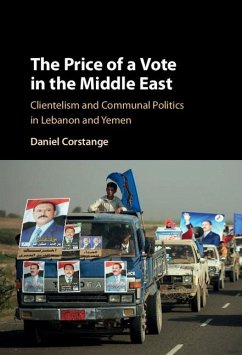Clientelism and ethnic favoritism appear to go hand in hand in many diverse societies in the developing world. However, while some ethnic communities receive generous material rewards for their political support, others receive very modest payoffs. The Price of a Vote in the Middle East examines this key - and often overlooked - component of clientelism. The author draws on elite interviews and original survey data collected during his years of field research in Lebanon and Yemen; two Arab countries in which political constituencies follow sectarian, regional, and tribal divisions. He demonstrates that voters in internally-competitive communal groups receive more, and better, payoffs for their political support than voters trapped in uncompetitive groups dominated by a single, hegemonic leader. Ultimately, politicians provide services when compelled by competitive pressures to do so, whereas leaders sheltered from competition can, and do, take their supporters for granted.
Dieser Download kann aus rechtlichen Gründen nur mit Rechnungsadresse in A, B, BG, CY, CZ, D, DK, EW, E, FIN, F, GR, HR, H, IRL, I, LT, L, LR, M, NL, PL, P, R, S, SLO, SK ausgeliefert werden.

